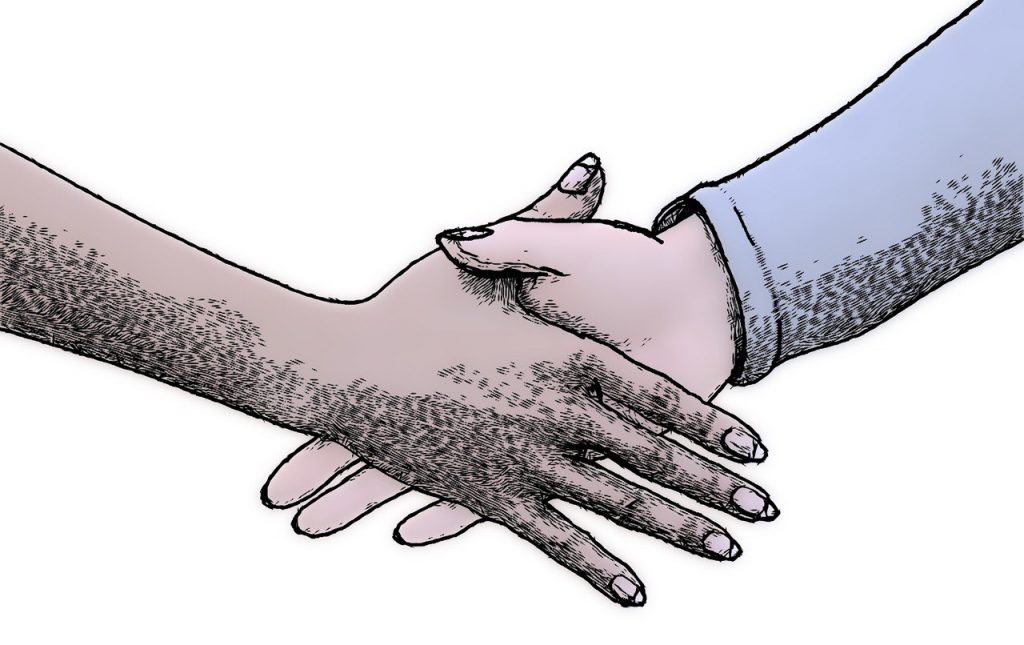What is spoken Russian language?
Spoken russian language. When learning the Russian language, it is very important to learn words and phrases not only from a certain topic, but also common colloquial expressions. Such phrases will help you sound more natural and feel more comfortable during a conversation. The following article will present units of words and phrases that we use every day in conversations with family, friends and other people we meet in everyday life. These phrases will not only improve your vocabulary, but also help you maintain a basic conversation in Russian. To explore dialogues on other conversational topics, go here.
Polite words and expressions
Nothing lifts your mood better than saying “good morning” with a smile or a sincere “thank you”. Polite words are necessary in any language and they must be known. Polite words help us make a good impression, help us understand the mood and intentions of other people, and also maintain good relations in society. Being polite makes people around you treat you kindly and with respect. It is also pleasant to communicate with a person who follows the rules of politeness and uses polite words in his speech. That is why the set of phrases below will definitely be useful to you. And these are exactly the words that you can always hear from native speakers!
Спаси́бо – [ spasibo ] – thank you (informal)
Спаси́бо большо́е за по́мощь!
Thanks a lot for your help!
Благодарю́ – [ blagodaryu ] – thank you (formal)
Благодарю́ вас за предоста́вленную информа́цию.
Thank you for the information provided.
Будьте здоро́вы – [ bud’te zdorovy ] – God bless you, stay healthy
Будьте здоро́вы, береги́те себя́ и уви́димся по́зже.
Stay healthy, take care of yourself and see you later.
Извини́те – [ izvinite ] – sorry
Извини́те, я ни в ко́ем слу́чае не хоте́л вас оби́деть.
Sorry, I didn’t mean to offend you in any way.
Прошу́ проще́нья – [ proshu proshenya ] – pardon me
Прошу́ проще́нья за по́здний звоно́к, но мне ну́жно сро́чно с ва́ми поговори́ть.
I’m sorry for the late call, but I need to speak to you urgently.
Прости́те, пожа́луйста – [ prastite pojalusta ] – please forgive me
Прости́те, пожа́луйста, за беспоко́йство.
Please forgive me for disturbing you.
Разреши́те мне – [ razreshite mne ] – let me
Разреши́те мне помо́чь вам.
Let me help you.

Saying hello and goodbye
Greeting a person is the obvious start to any conversation. What and how you say at the beginning creates the atmosphere of your communication and determines how the conversation will continue. A positive greeting creates a good mood for both interlocutors and sets them up for a productive dialogue. Greetings and farewells are an integral part of everyday and routine dialogues in oral and written speech. Therefore, of course, these are must-know words.
Приве́т – [ privet ] – Hello ( informal )
Здра́вствуйте – [ zdrastvuyte ] – Hello ( formal )
До́брое у́тро – [ dobroye utro ] – Good morning
До́брый день – [ dobriy den’ ] – Good afternoon
До́брый ве́чер – [ dobriy vecher ] – Good evening
До́брой но́чи – [ dobroy nochi ] – Good night
Пока́ – [ poka ] – Good bye
До свида́ния – [ do svidaniya ] – See you
Всего́ хоро́шего – [ vsego horoshego ] – Best wishes

Expressions for basic conversation
Once a positive contact with your interlocutor is established, you can move on to further conversation. You already know how to use polite words as well as words of greeting. These words and sentences will create a good impression of you and make your mood up. From this point on, you can proceed to the subsequent productive conversation. The following phrases will help you maintain a basic conversation and get the information you need. As well as the previous ones, these words and phrases are simple and routine which can be useful in everyday speech. You can learn how to get to know each other, learn someone’s name and give your own. Find out how the person you are talking to is doing and answer the same question.
Дава́йте познако́мимся – [ davayte poznakomimsya ] – Let’s get acquainted
Как вас/тебя́ зову́т? – [ kak vas/tebya zovut ] – What is your name? ( formal+informal)
Меня́ зову́т… – [ menya zovut ] – My name is…
Прия́тно познако́миться! – [ priyatno poznakomitsya ] – Nice to meet you!
Рад(а) вас ви́деть – [ rada vas videt’ ] – Glad to see you
Как у вас/тебя́ де́ла? – [ kak u vas/tebya dela ] – How are you? (formal+informal)
У меня́ всё хорошо́/не о́чень хорошо́ – [ u menya vsyo horosho/ ne ochen’ horosho ] – I’m good/not so good
A few more useful phrases…
Sometimes during a conversation, a situation may arise when you need to tell your needs to your interlocutor. Or someone might ask you a question about what you would like to do or get. This is an example of another simple conversational situation that can happen on a typical day. Learning and using these sentences in your speech will not only expand your vocabulary. But will also allow you to be more fluent in the language.
Мне хо́лодно – [ mnye holodno ] – I’m cold
Мне хо́лодно, я наде́ну сви́тер.
I’m cold, I’ll put on a sweater.
Мне жа́рко – [ mnye jarko ] – I’m hot
Мне жа́рко, я хочу́ вы́пить холо́дной воды́.
I’m hot, I want to drink cold water.
Я го́лоден – [ ya goloden ] – I’m hungry
Я го́лоден, мы мо́жем пойти́ в кафе́?
I’m hungry, can we go to a cafe?
Я сыт – [ ya syt ] – I’m full
Я уже́ сыт, потому́ что э́та по́рция была́ о́чень больша́я.
I am already full because this portion was very large.
Я хочу́ пить – [ ya hachu pit’ ] – I’m thirsty
Я о́чень хочу́ пить. Где́ я могу́ купи́ть во́ду?
I am already full because this portion was very large.
Э́то до́рого – [ eta doraga ] – It’s expensive
Э́то до́рого, поэ́тому я не бу́ду покупа́ть э́то сейча́с.
It’s expensive, so I won’t buy it now.
Э́то дешёво – [ eta dyosheva ] – It’s cheap
Э́то дешёво, поэ́тому я хоте́л бы взять не́сколько пар.
It’s cheap, so I’d like to take a few pairs.
Э́то вы́годно – [ eta vygadna ] – It’s profitable
Э́то вы́годно, поэ́тому я хоте́ла бы купи́ть э́то и для себя́.
It is profitable, so I would like to buy it for myself.
In the article, we have analyzed the most important and common colloquial phrases. These words were divided into such subtopics: polite words, phrases for greetings and farewells, as well as several phrases for expressing one’s needs and opinions. Each of the groups of these words has its own function and they can be useful to you both during one dialogue and during several conversations. These words and sentences will help you build productive communication and keep a simple conversation going. And polite words will certainly create a good impression about you. For more information about the Russian language, go to Instagram.
Good luck with learning Russian!